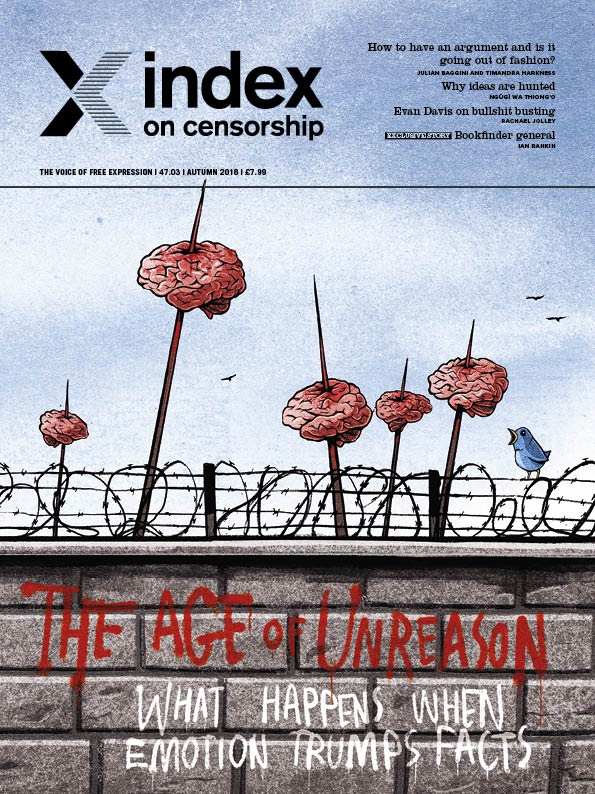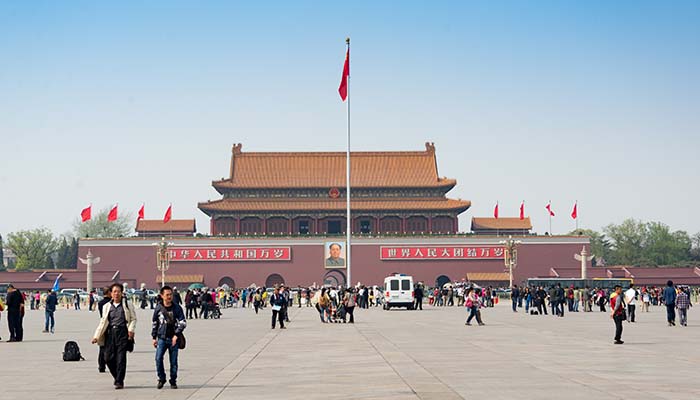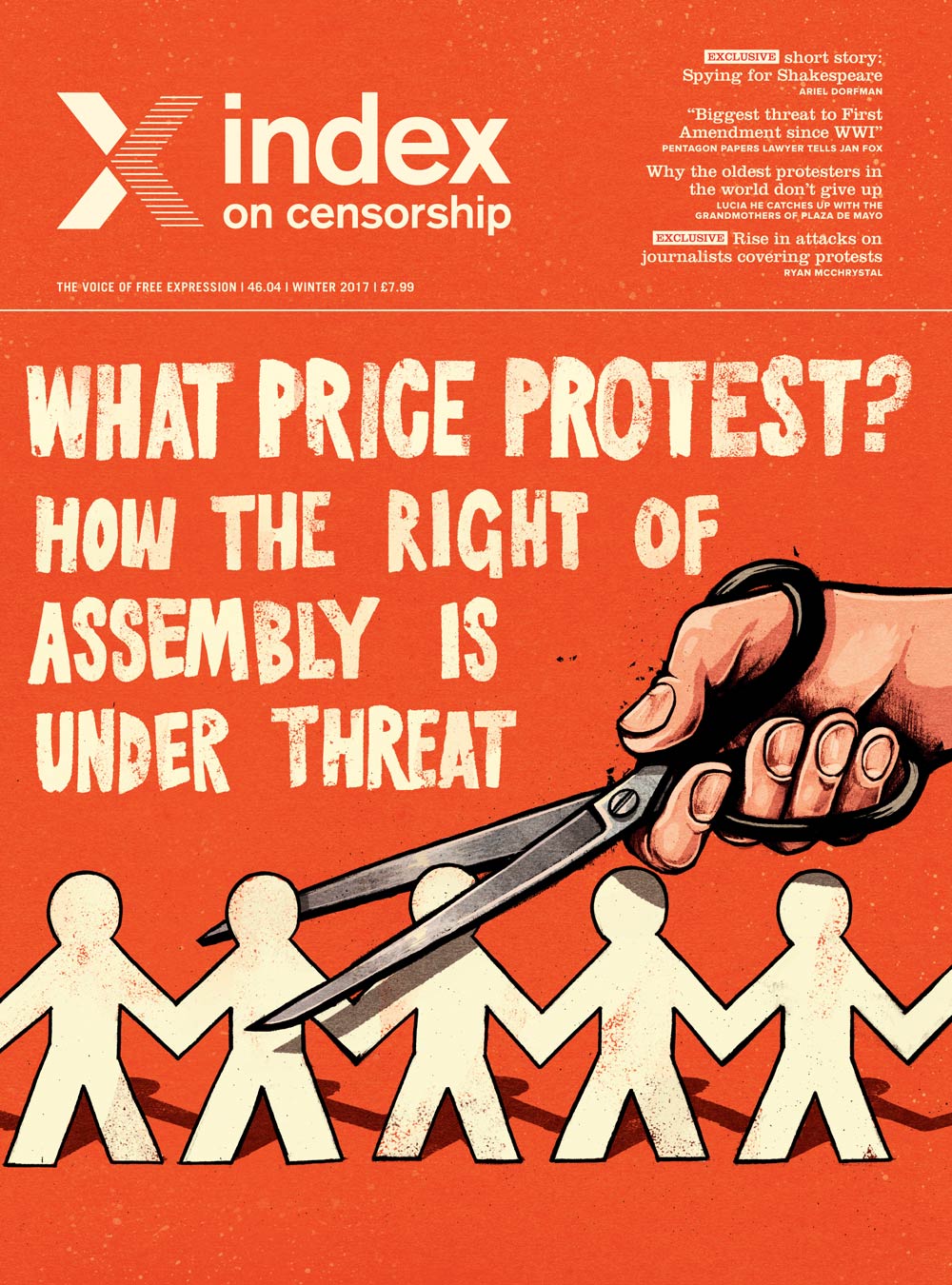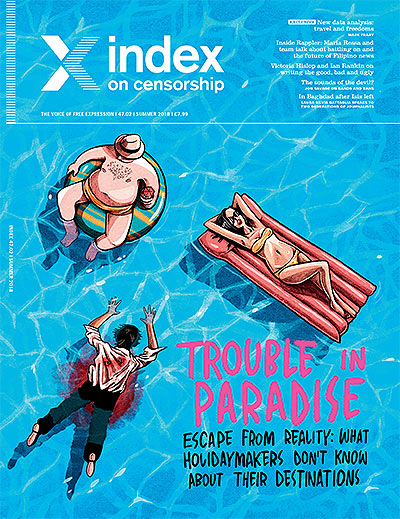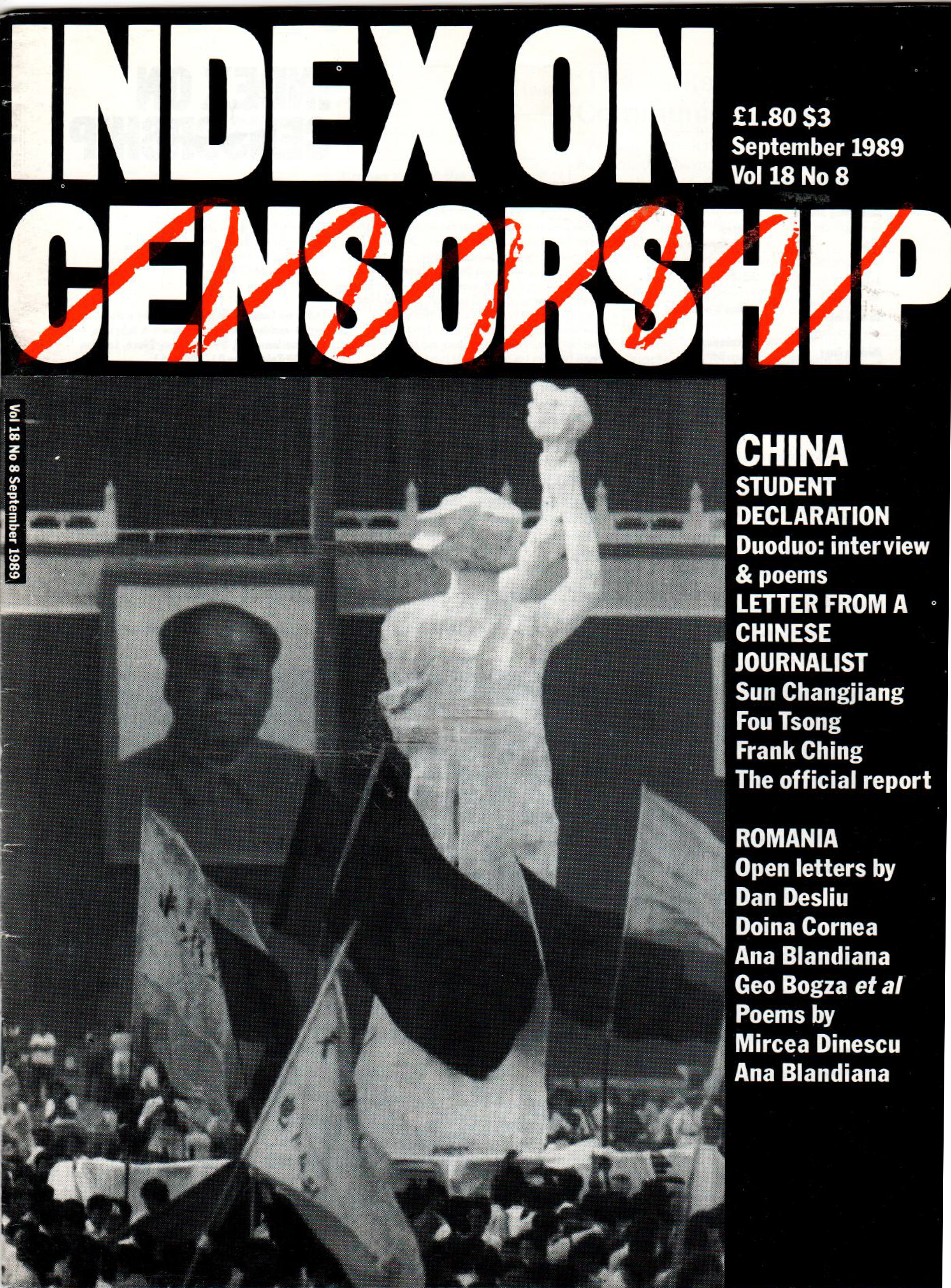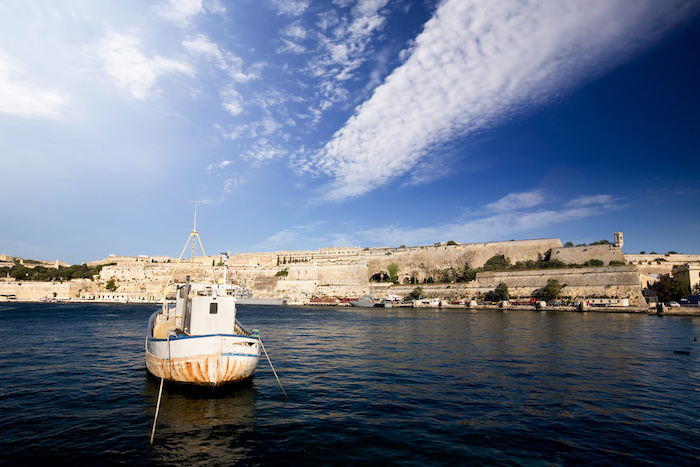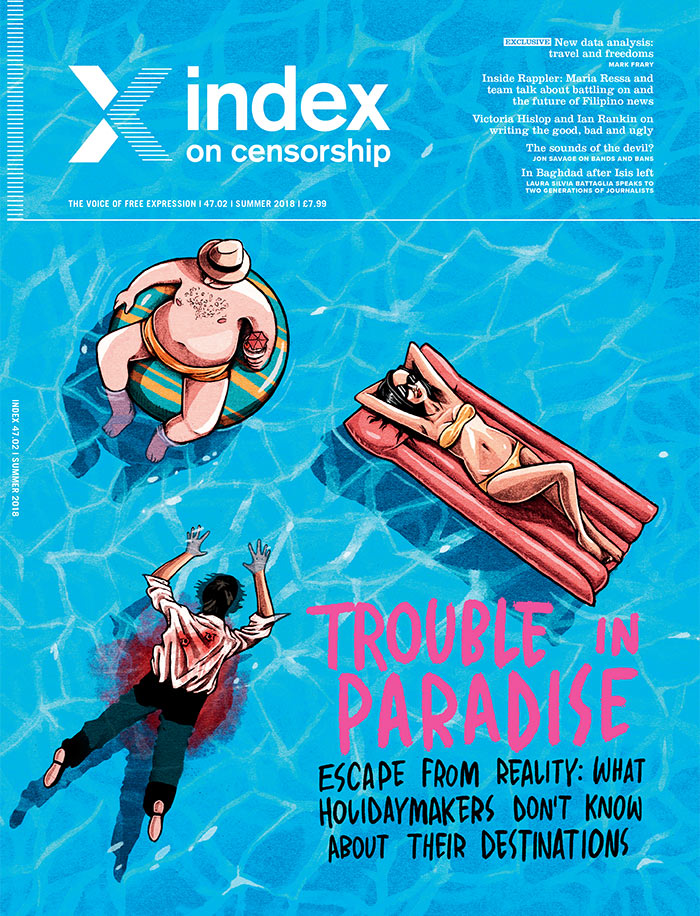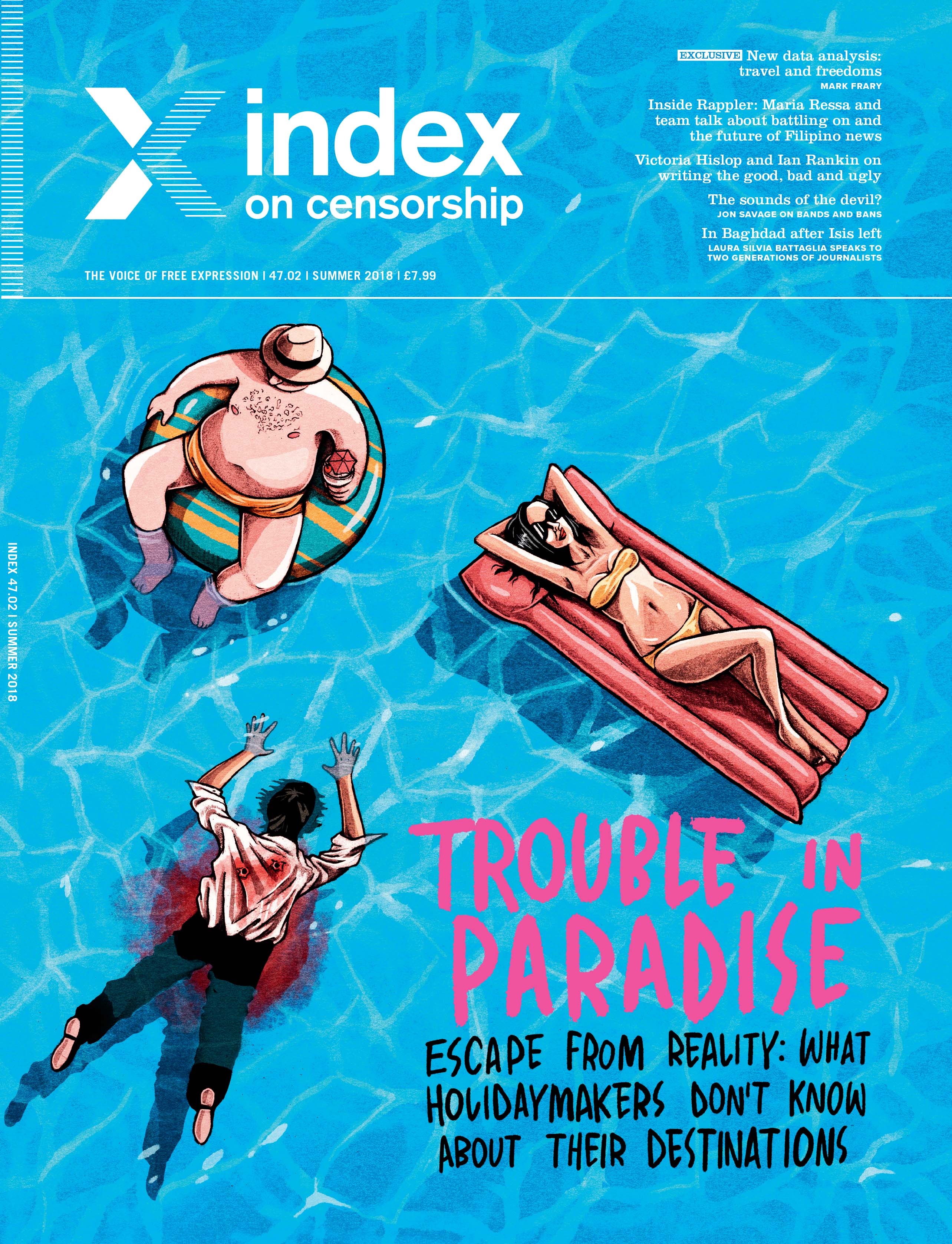The autumn 2018 Index on Censorship magazine asks whether we are turning away from facts, reason and science in favour of emotions. TV presenter Evan Davis speaks about why we are willing to believe lies, while philosopher Julian Baggini outlines the difficulties of sharing a viewpoint that is not popular. Meanwhile, Timandra Harkness illustrates how you can have an argument. We also have articles from Kaya Genç in Turkey exploring the current attack on science in the education system, from Stephen Woodman in Mexico on the rise of documentaries as an antidote to a biased media and from Dan Nolan in Hungary on increasing government interference in the arts and now sciences. Outside the special report, don’t miss Amanda Leigh Lichtenstein writing about the Tanzanian government’s attempt to muzzle bloggers through introducing fees that are more than most people’s salaries, and Nobel Prize-winning novelist and poet Herta Müller on being threatened by the secret police in Romania.
CATEGORY: Magazine
一段不应忘却的历史
中国政府最近新通过一项法律,该项法律将惩罚官方认为错误的历史叙述。林慕莲 为《失忆人民共和国—重返天安门》一书作者,她认为在当下的中国她将无法完成此书的写作。
Index on Censorship magazine wins APEX award
Index on Censorship is honoured to announce that our magazine has won an ‘Award of Excellence’ in the ‘Magazines, Journals & Tabloids – Writing (entire issue)’ category for the Awards for Publication Excellence (APEX).
Playlist: Trouble in Paradise
A holiday-themed playlist to accompany the summer issue of Index on Censorship, which looks at trouble in paradise
China and censorship
Index on Censorship magazine Index has compiled a reading list of articles from the magazine archives covering censorship In China.
Reel-time: Combatting fake news online
As “fake news” dominates headlines, Index’s global team of experienced journalists offers tips on how to spot falsehoods before you click and share
Double Vision: The truth behind this year’s Europe’s Capital of Culture. The label conceals darker truths about what is happening in Malta
Malta’s beautiful tourist image masks a murky underside of this Mediterranean island, writes Caroline Muscat
Visit any destination, but don’t gloss over the free speech issues, argue panellists at launch of Index summer magazine
Travel to any destination, just make sure you report the truth, argue Index panellists at launch of the Index on Censorship summer magazine 2018, Trouble in Paradise
“Travel writers don’t tell holidaymakers the whole truth about holiday hotspots” – Index report
With holidaymakers packing up for their summer trips, a new issue of Index on Censorship magazine reveals the uglier side of countries with tourist appeal and calls on travel writers to do more to give travellers the whole picture.
Do crime writers tell us more truths than travel writers?
Crime writers have less to lose than travel writers in describing the underside of holiday spots, argues Rachael Jolley.
Trouble in paradise
The summer 2018 Index on Censorship magazine takes you on holiday, just a different kind of holiday. Visit Malta with top Maltese editor Caroline Muscat. This favourite Mediterranean destination is where a leading journalist, Daphne Caruana Galizia, was brutally murdered approximately 100 metres away from her home back in October. In Baja California Sur, tourists take snaps of themselves next to whales, their lenses rarely taking snaps of another reality – the huge drug war raging in the Mexican state that has made it an incredibly dangerous place to live, as Stephen Woodman explores. The Philippines definitely wins awards for its stunning beaches, just not for its press freedom. Maria Ressa, CEO of Rappler, and Miriam Grace A Go, the site’s news editor, explain the harassment they have faced and why they won’t be silenced. And bestselling authors Ian Rankin and Victoria Hislop show you uglier sides to the tourist hotspots that are the backdrops of their books.
Contents: Trouble in paradise
The spring 2018 issue of Index on Censorship magazine takes a special look at how governments and other powers across the globe are manipulating history for their own ends
A quarterly journal set up in 1972, Index on Censorship magazine has published oppressed writers and refused to be silenced across hundreds of issues.
The brainchild of the poet Stephen Spender, and translator Michael Scammell, the magazine’s very first issue included a never-before-published poem, written while serving a sentence in a labour camp, by the Soviet dissident Aleksandr Solzhenitsyn, who went on to win a Nobel prize later that year.
The magazine continued to be a thorn in the side of Soviet censors, but its scope was far wider. From the beginning, Index declared its mission to stand up for free expression as a fundamental human right for people everywhere – it was particularly vocal in its coverage of the oppressive military regimes of southern Europe and Latin America but was also clear that freedom of expression was not only a problem in faraway dictatorships. The winter 1979 issue, for example, reported on a controversy in the United States in which the Public Broadcasting Service had heavily edited a documentary about racism in Britain and then gone to court attempting to prevent screenings of the original version. Learn more.

